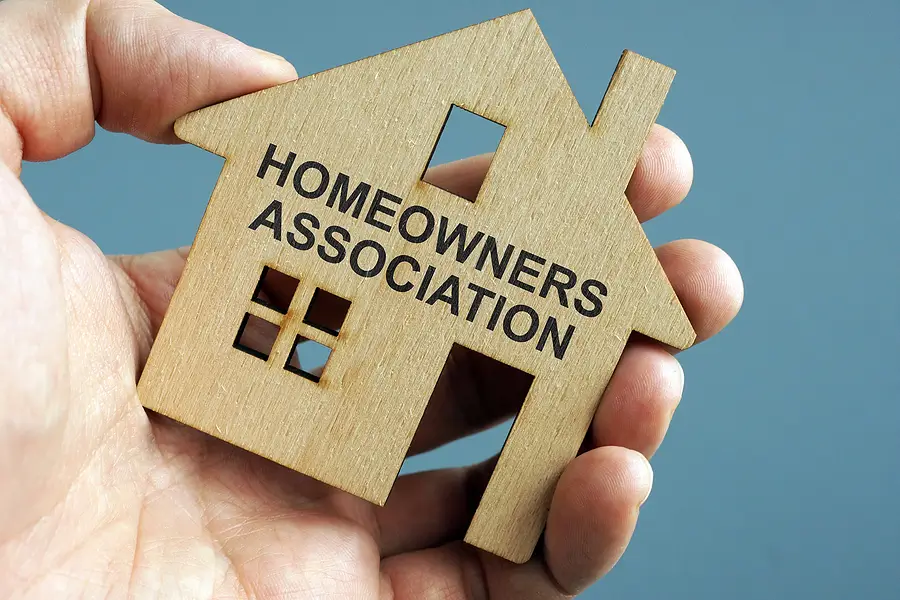Owning a rental property in Kansas City comes with exciting opportunities and steady income potential, but when that property is located within a Homeowners Association (HOA), there are extra layers of responsibility. An HOA can help protect property values and ensure a cohesive neighborhood aesthetic, but it also means you’ll have to follow additional rules that affect both you and your tenants.
This blog will walk you through what you need to know about owning a Kansas City rental in an HOA community.
Key Takeaways
HOAs create rules that both landlords and tenants must follow, which can affect leasing terms, property use, and tenant behavior.
Landlords are responsible for ensuring tenants comply with HOA regulations. Violations can result in fines or legal disputes.
Key factors to consider include HOA fees, restrictions on leasing, property maintenance standards, and approval requirements.
Communication is critical, keeping tenants informed about HOA rules can prevent violations and strengthen the landlord-tenant relationship.
Partnering with a property management company helps navigate HOA requirements while protecting your investment.
Understanding the Role of an HOA in Kansas City Rentals
A Homeowners Association (HOA) is a governing body created to manage and maintain common areas in a neighborhood or community. For Kansas City landlords, this means your rental property isn’t just subject to Missouri’s landlord-tenant laws and your lease agreement, it must also comply with HOA regulations.
These rules can cover everything from lawn care and exterior paint colors to parking restrictions and noise policies. While this structure helps maintain a well-kept neighborhood, it also requires landlords to carefully align their lease agreements with HOA expectations.
Common HOA Rules That Affect Landlords
When you own a rental in an HOA community, you should expect the following kinds of rules and restrictions:
Leasing Restrictions – Some HOAs limit the number of rentals allowed or require prior written consent before leasing your property. Always check the governing documents before listing your home.
Tenant Behavior – HOAs often have strict rules about parking, noise, trash disposal, and use of shared spaces. If tenants break these rules, you—the landlord—may be fined.
Property Appearance – HOAs usually enforce maintenance standards, requiring lawns to be cut, snow to be cleared, and exteriors to remain in good condition. If tenants fail to comply, the landlord bears responsibility.
Approval of Tenants – Some associations may require tenant applications or screening before allowing occupancy.
Payment of Dues – HOA fees remain the responsibility of the landlord, not the tenant, unless otherwise specified in the lease. Unpaid dues can result in liens or legal action.
How HOAs Impact the Lease Agreement
Because your HOA has its own rules, your lease agreement should be customized to reflect them.
For example:
Include HOA Addendums – Attach HOA bylaws or rules to your lease and require tenants to acknowledge them.
Responsibility for Fines – State whether tenants will be held responsible for fines incurred due to their behavior.
Maintenance Expectations – Clarify which upkeep tasks are the tenant’s duty, like lawn care or snow removal, in compliance with HOA standards.
Restrictions on Subletting – If your HOA requires prior written consent, make sure your lease matches this rule.
This helps protect your landlord tenant relationship by avoiding surprises and ensures your rental property stays in compliance.
Benefits of Owning a Rental in an HOA
While HOAs can seem restrictive, they also bring benefits that landlords can leverage:
Protecting Property Value – Strict rules about appearance help maintain neighborhood quality, which benefits your long-term investment.
Attractive Amenities – Many HOA communities in Kansas City offer pools, gyms, or parks that appeal to tenants.
Neighborhood Standards – Tenants are more likely to respect the community when consistent rules are in place.
Challenges to Be Aware Of
Despite the benefits, landlords must also navigate potential drawbacks of HOA rentals:
Added Costs – HOA dues cut into profits, so factor them into your cash flow analysis.
Limited Control – You can’t always make decisions freely, such as changing landscaping or renting without approval.
Potential Disputes – If a tenant defaults on HOA compliance, you may face fines, penalties, or legal action.
Being proactive and clear in your lease agreement reduces these risks.
Tips for Managing a Kansas City Rental in an HOA
Know the Rules Inside and Out – Review your HOA’s governing documents thoroughly.
Communicate with Tenants – Provide a copy of the HOA rules before move-in and discuss expectations clearly.
Document Everything – Keep written proof of tenant acknowledgment and any HOA notices.
Stay Current on Dues – Always pay HOA fees on time to avoid complications with your investment.
Consider Professional Management – A property management company can handle HOA communication, compliance, and tenant education for you.
Partner with Oz Accommodations for HOA Rental Success
Owning a Kansas City rental property in an HOA community requires balance. You must protect your investment while ensuring your tenants comply with HOA expectations. At Oz Accommodations, we simplify this process. Our team helps landlords align lease agreements with HOA requirements, prevent disputes, and keep rental operations running smoothly.
Whether you’re a first-time landlord or managing multiple properties in HOA communities, we’re here to provide clarity, support, and results. Contact us today to learn more.
Frequently Asked Questions
1. Can my tenant be directly fined by the HOA?
Most HOAs hold the property owner, not the tenant, responsible for violations. However, you can state in your lease that tenants must reimburse you for any fines caused by their actions.
2. What happens if the HOA doesn’t allow rentals?
If your HOA prohibits rentals, you must comply. Some associations cap the number of rental units, while others ban them entirely. Always confirm this before purchasing a rental in Kansas City.
3. Do tenants need to follow HOA rules even if they didn’t sign them?
Yes. By living in an HOA-governed community, tenants are bound by its rules. Landlords should ensure tenants sign an acknowledgment form with the lease.
4. Can the HOA evict my tenant?
No, only a landlord can initiate eviction. However, the HOA can impose fines or legal action that makes non-compliance costly for you as the property owner.
5. Should I hire a property management company for an HOA rental?
Yes. A professional team like Oz Accommodations can oversee compliance, handle communication with the HOA, and ensure both landlord and tenant responsibilities are met.


